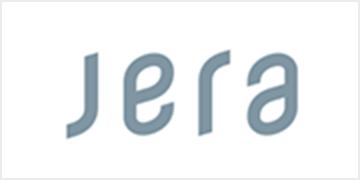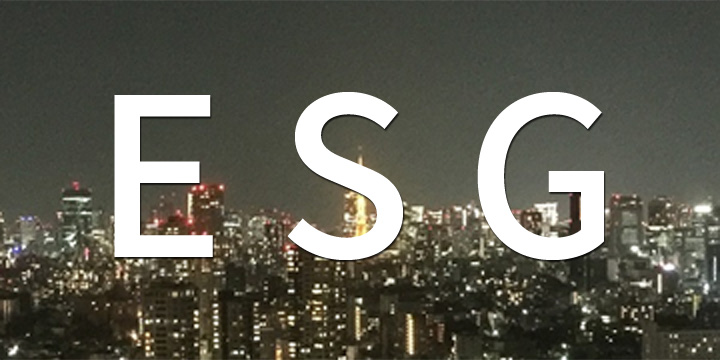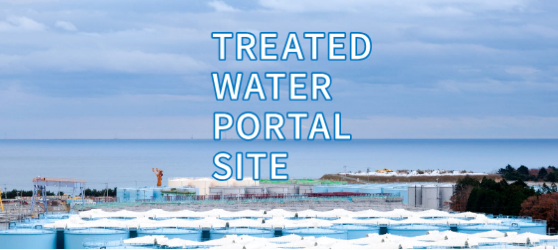TEPCO's Endeavors
- consulting -
Overseas Consulting
Overseas Consulting
Providing Optimal Solutions Leading to Business Creation and Collaboration
More than 600 consulting projects completed in about 70 countries
Our company provides the Japanese market with a number of power-related services in various fields, including fuel procurement, power generation, power transmission and distribution, retail sales, and energy conservation. Through such work, we have been improving our expertise and technologies. To be more specific, our efforts have been focused on improving the thermal efficiency of power stations, decreasing power transmission and distribution loss rates, and pursuing energy conservation through energy management. Our achievements in these fields currently put us among the world's leading companies.
In addition, in 1996 we began using the technologies and know-how we had accumulated in Japan to offer consulting services abroad. We have since handled more than 600 projects in about 70 different countries.
What really sets our consulting services apart from the competition is our ability to handle a large variety of power-related projects by using the advantages of being a corporate group that offers integrated power services. Our customer base includes government institutions, power companies, and various corporations. The projects we handle are very diverse and include creating power supply master plans at a national level, providing power companies with advice related to power system maintenance, and introducing energy management systems (EMS) to plants and offices. In the field of power generation, we provide consulting services related to both thermal power and renewable energy generation, including hydroelectric power generation.
Another characteristic of our operations is the capability to offer one-stop solutions, which include an entire range of processes from planning and designing facilities and systems to construction work management, facility operation and management, repairs, and maintenance.
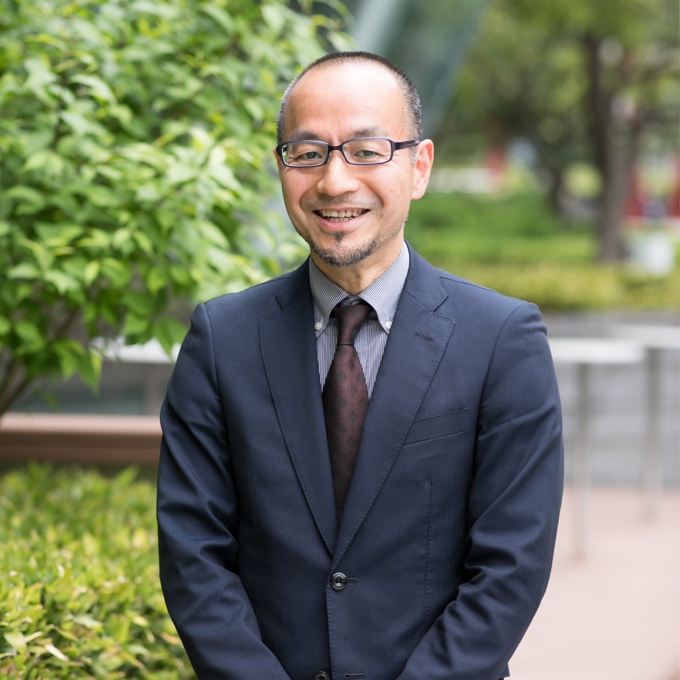
International Affairs Office, TEPCO Holdings, Inc.
Deputy General Manager
Izumi Ouchi
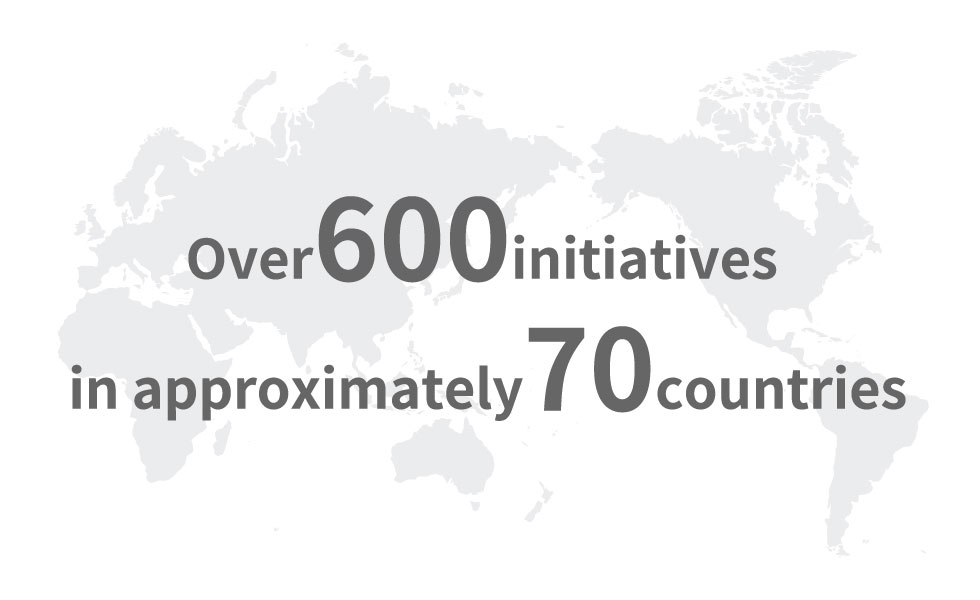
Solving a variety of issues by choosing the appropriate approach for each project
The problems our customers are faced with depend greatly on the situation. When it comes to issues at a national level, for instance, there are countries where the electrification rate needs to be increased and countries where carbon dioxide emissions need to be reduced. During each project, we travel directly to the local area and talk to the people involved in order to understand fully the situation and the issues our customers are trying to tackle. Our ultimate goal is to provide optimal solutions to address the core issues in each project.
Our capability to help our customers with a wide range of issues owes much to our journey as a company, which was established in 1951 during the post-World War II recovery period in Japan. In the past, we also had to deal with serious issues related to the maintenance and expansion of power infrastructure, which was crucial for sustaining the country's economic growth. With each issue we managed to solve, we accumulated more knowledge, technologies, and know-how across various fields, and continued to build up the skills that allow us to provide optimal solutions for all kinds of issues.
Our company is also characterized by highly competent staff. For each consulting project, we select a team of seasoned professionals with extensive expertise suitable for the job.
Responding to new trends in the electricity market with technologies and know-how accumulated over the years
The global electricity market is currently undergoing dramatic changes. Due to the emergence of on-site power sources and prosumers, the power transmission and distribution flows are no longer unidirectional, and various countries are faced with the need to introduce smart grids. There is also increasing interest in the introduction of resiliency measures in order to ensure a stable supply of electricity during natural disasters and in emergency situations. We are confident the technologies and know-how we have accumulated can make an important contribution to solving these new issues.
The most important assets we have managed to obtain through our consulting services are trusted relationships with our customers. The dramatic changes that are taking place in the electricity market can also be seen as a new business opportunity. In addition to providing solutions, our goal is to work together with our clients around the world to create new business ideas.
Consulting Services for Thermal Power Generation
Detecting signs of potential equipment malfunctions or deterioration to improve thermal efficiency and reduce the impact on the environment
- What kinds of consulting services do you provide for power companies around the world?
Our services can be divided into two main groups.
One group includes consulting services related to improving the operation and maintenance of thermal power stations that are already running. The goal is to discover any malfunctioning or deteriorating equipment at an early stage in order to avoid significant failures or prevent unintentional shutdowns due to such failures. This is done to improve the operation rate and thermal efficiency of power stations.
The other group includes consulting services for government institutions and power companies that are planning to build new thermal power stations. The goal is to help such organizations find a suitable location, determine the power station output capacity, create a construction budget, and plan operational costs. Before selecting a location, we evaluate various factors to confirm that the bedrock at the site is strong enough, that a ready supply of boiler feedwater to the area is available, and that there are no other potential risks. When determining the output capacity of a power station, we submit a proposal after examining the size of the power station necessary to supply the target amount of electricity in accordance with the power supply master plan created by each individual country.
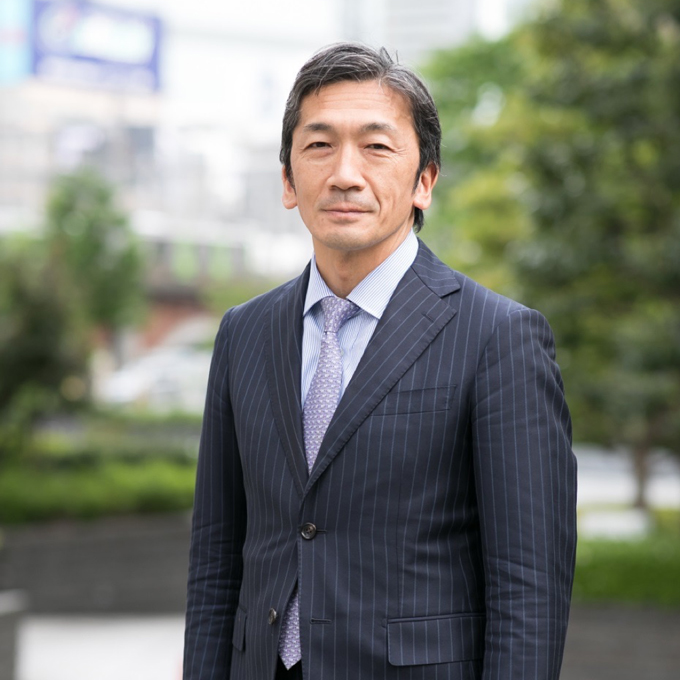
Electric Power & Gas Division, TEPCO Energy Partner, Inc. and International Affairs Office, TEPCO Holdings, Inc.
Manager of Overseas Business Promotion Project Group
Yoshihiro Ueno
- Could you describe a specific consulting project you undertook in the past?
Specifically, we are using our IoT (Internet of Things) technology, which includes performance control services in real time, to monitor the operation of power stations. We analyze the results to quickly detect any signs of performance deterioration. Once we have identified deteriorating sections, we determine the cause and propose appropriate countermeasures based on the experience and know-how we have accumulated over the years. In other words, while the signs of deterioration are detected by our IoT technology, we rely on years of experience and expertise to determine the causes and countermeasures.
Many countries and power companies are currently trying to address problems of thermal efficiency deterioration at thermal power stations. We believe our consulting services can make a significant contribution to solving those problems.
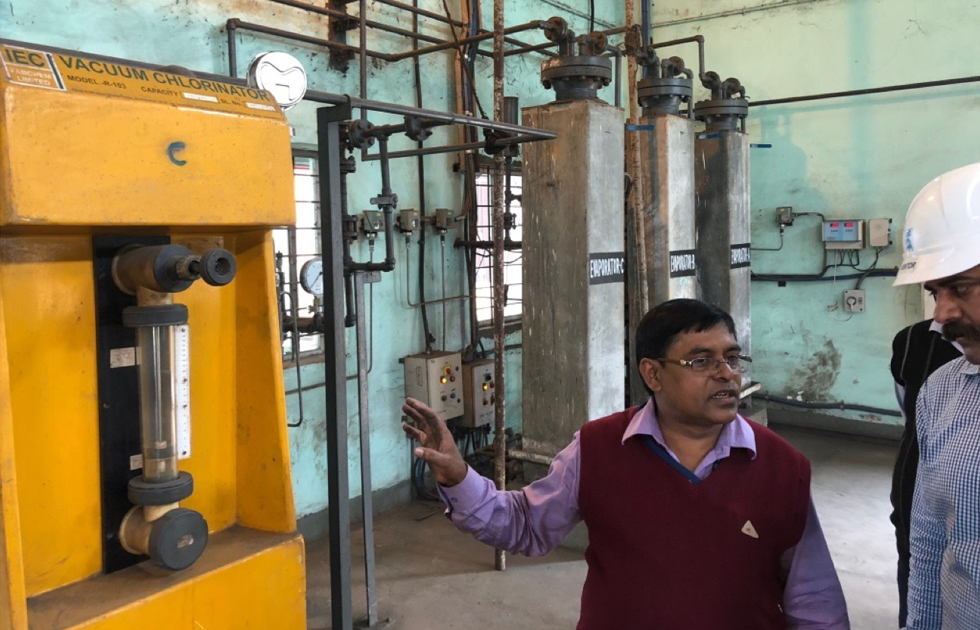
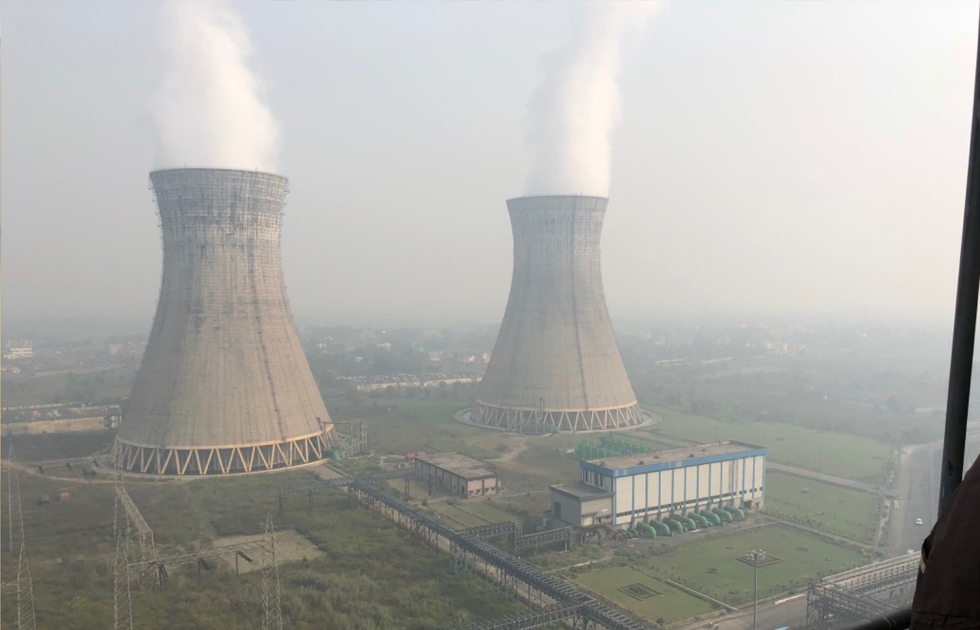
- We have heard that the highly efficient “integrated coal gasification combined cycle” has been put to practical use.
In recent years, many countries have steered business to renewable energy generation, which is causing the number of construction plans for new thermal power plants to drop. That does not mean, however, that consulting services are no longer in demand. Although there is little doubt that the importance of renewable energy generation will grow in the future, such renewable energy alone will not be enough to provide society with the necessary amount of electricity. For the time being, we will need to use fossil fuels in combination with renewable energy sources to generate power. It is therefore essential to develop environmentally friendly thermal power stations by improving thermal efficiency, reducing greenhouse gas emissions, and decreasing the amount of pollutants.
The maximum thermal efficiency level of a coal-fired thermal power station is usually between 42-43%. However, Mitsubishi Hitachi Power Systems (MHPS) has successfully commercialized IGCC (integrated coal gasification combined cycle) with a thermal efficiency level of 48-50% in Japan. In cooperation with MHPS, we have proposed introducing IGCC technology in Thailand and Chile, where plans have been made to renovate coal-fired thermal power stations. We believe there are also other countries where IGCC technology is in demand.
- Why is TEPCO able to provide services for so many different types of power generation?
One of the main reasons is that we are actually the largest electric power company in Japan. In addition to having a large number of thermal power stations, we also operate many other types of power generation facilities such as steam power stations, combined cycle power stations (ACC and MACC power generation), and IGCC. We also utilize various types of fuel to generate power, such as liquefied natural gas, coal, and oil. Our technologies and know-how, therefore, enable us to offer consulting services for any type of thermal power generation method. We also provide consulting services for hydroelectric power generation and renewable energy generation.
As consultants, we often discover issues that our customers are not even aware of. In such cases, we provide guidance and propose solutions. Our professionals are trained to discover both visible and latent issues. Through our consulting services, we would like to continue offering our customers the best possible solutions.
Consulting Services for Power Transmission and Distribution
Reducing power transmission and distribution losses, shortening the duration of power outages, and installing underground substations
- Tell us about the main consulting services you provide for the power transmission and distribution business.
Most of our consulting services are focused on planning power transmission and distribution systems. For instance, if a power company expects the demand for electricity to grow in the future, they plan construction of a new power station. In such cases, our job is to help the power company create a plan to find out exactly how they should install power transmission and distribution lines, and how they should build substations in order to ensure a stable electricity supply from the power station to various buildings, factories, and households.
We also offer consulting services for customers who want to reduce power transmission and distribution losses and shorten the duration of power outages by planning replacement work for old and deteriorated power transmission and distribution lines and by improving facility operation methods. Customers that use these services are mostly power companies from various other countries.
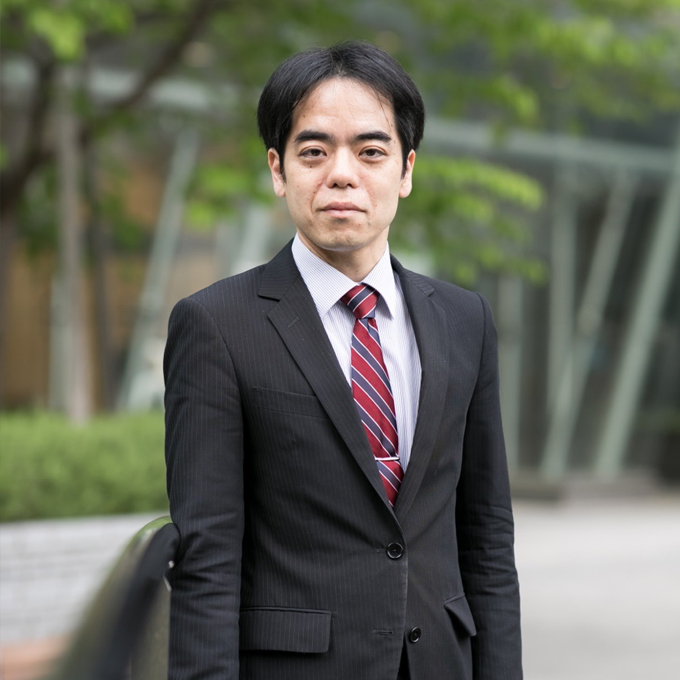
International Affairs Office, TEPCO Holdings, Inc.
Manager of Power System Consulting Group
Osamu Matsuzaki
- Are power outages still a major issue?
Many power companies abroad tend to think that power outages are very rare in Japan. Their perception is actually correct, since the number of power outages per household for TEPCO is 0.06 times per year, and power outage time per household is six minutes per year, which puts us among the most advanced countries in the world. In the UK, for instance, the power outage time is about 93 minutes per year, whereas in the State of California in the US, the power outage time reaches about 130 minutes per year. Many Asian countries are dealing with a sharp increase in the demand for electricity while trying to tackle the issue of reducing outage times. That is why those countries are taking a strong interest in our power transmission and distribution systems seeking proper advice or guidance.
- Could you detail a specific case where power outage time was successfully reduced?
According to Hanoi Power Corporation, whose service area includes the city of Hanoi in Vietnam, the power outage time per household (System Average Interruption Duration Index: SAIDI) was about 1560 minutes per year. While power outages caused by power transmission facilities were relatively rare, those caused by power distribution lines had always been frequent. One of the reasons for such failures was a lack of systems that would enable power distribution lines to reduce the amount of affected power outage locations to a minimum.
Therefore, our company provided Hanoi Power Corporation with consulting services in order to introduce a “multi-divided and multi-connected” (MDMC) power distribution system. With such an arrangement, even if a failure occurs electricity can still be supplied by switching to a different system.
We conducted a pilot study as part of our consulting services, during which we introduced an MDMC system for six power distribution lines (about 40,000 households). As a result, we confirmed that SAIDI in that area could be reduced by 496 minutes. By seeking to promote MDMC systems, we can further reduce the power outage time in the future.
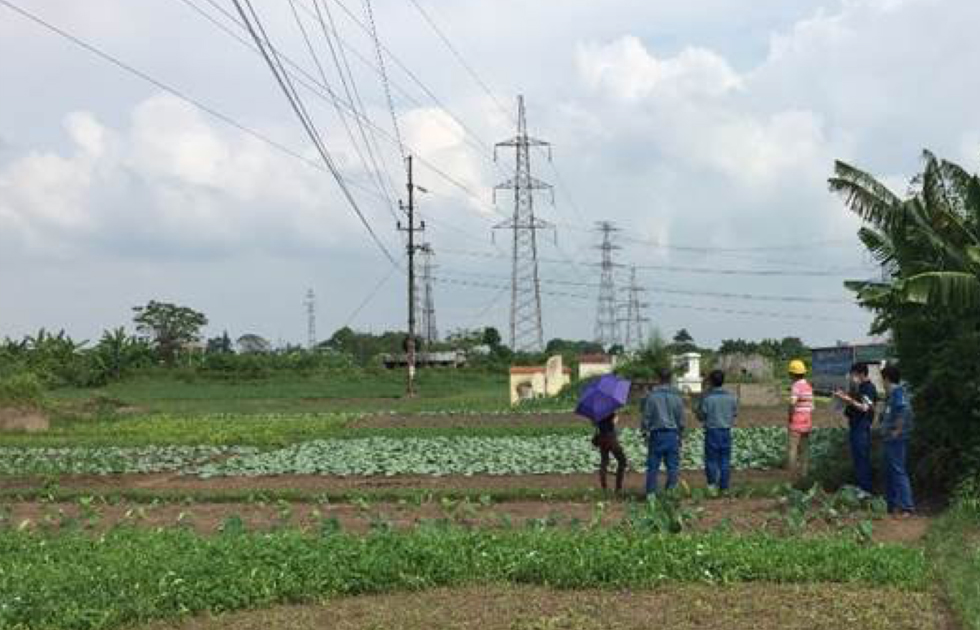
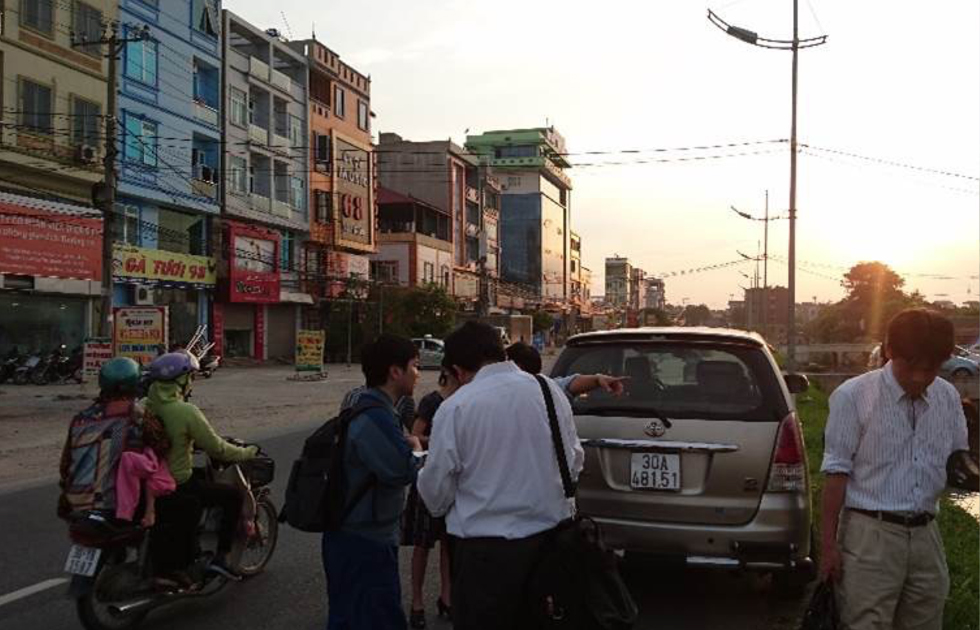
- The demand for underground substations seems to be increasing.
For densely populated cities in the member states of the Association of Southeast Asian Nations (ASEAN) such as Bangkok in Thailand or Manila in the Philippines, it is becoming increasingly difficult to secure enough land for building substations. We have actually been approached by those countries many times since they are taking a strong interest in building underground substations.
Our company boasts more than 50 years of experience in building underground substations. So far, we have completed over 200 construction projects of that type. Underground substations are virtually non-existent in the US and Europe. Thus, our construction technologies and operational know-how put us among the world's leading countries in this field. Land can be utilized more efficiently if substations are built underground, below commercial and office buildings.
The use of renewable energy sources such as solar or wind power has been expanding all around the world. As a result, we have seen an increase in the demand for consulting services with regard to the construction of power systems suitable for these power sources and their operation methods. Our company possesses all the right knowledge and technologies to accommodate these needs.
In addition, we own the technology for ultra-high voltage power transmission (1 million volts). About 10 years ago, we carried out a technological consulting project for China, which involved designing power transmission lines of 1 million volts. Ultra-high voltage power transmission networks are designed for long-distance power transmission, and they are also quite expensive, which is why not all countries require such transmission technologies.
Our company has the technologies required to plan and operate various types of transmission and substation facilities from ultra-high to low voltages. Our goal is to continue providing consulting services related to power transmission and distribution by taking into consideration the electric power circumstances in various countries.
Consulting Services for Energy Management
Offering one-stop solutions for all processes from analysis, design, and implementation to energy management and maintenance
- What kinds of consulting services do you provide for energy management?
We provide consulting services for reducing energy consumption in factories and commercial buildings. Our mission is to help our customers reduce energy consumption by creating environments where energy is utilized efficiently not only in individual buildings but also throughout the entire region. We use energy management systems (EMS) and similar methods to achieve that.
To be more specific, we first analyze the energy operation state at a particular facility. Next, we create a design for optimal energy operation and present it to the customer. We also act as project managers for equipment procurement and facility construction afterwards. Once the facilities actually start operating, we provide consulting services related to their operation and maintenance. Furthermore, we offer assistance in applying for government subsidies for designing and building facilities if such resources are available. In other words, our consulting projects involve a complete range of processes from facility analysis and design to construction, operation and maintenance.
We also often help government institutions from various countries create master plans for energy efficiency and conservation. This represents an essential part of our consulting operations.
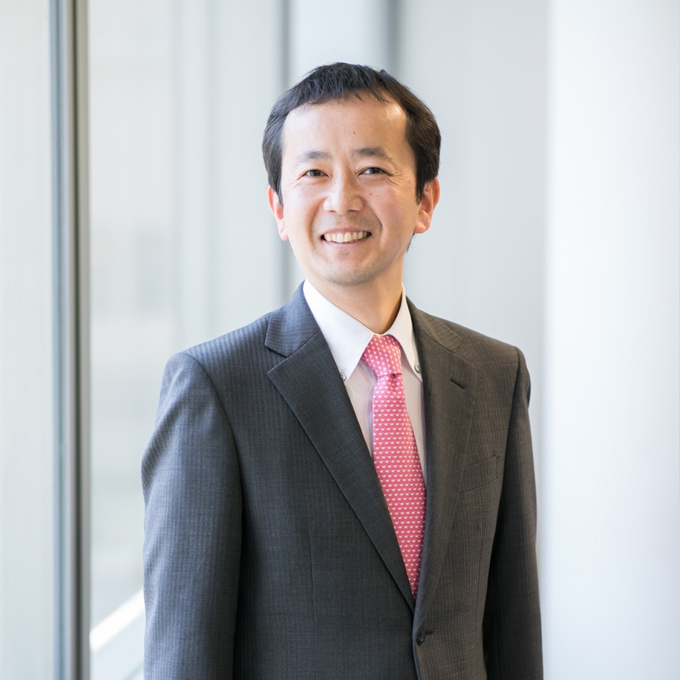
International Affairs Office, TEPCO Holdings, Inc.
Manager of Overseas Power & Energy Consulting Group
Ryosuke Oguri
- What sets TEPCO apart from its competitors when it comes to reducing energy consumption?
Japanese companies, including TEPCO, started their efforts to reduce energy consumption during the oil crisis in the 1970s. Those efforts started with a review of energy management methods in large factories and later gradually expanded to office buildings, supermarkets, other retail stores, and finally to households. Throughout that period, our company continued encouraging our customers to use energy more efficiently. Such efforts allowed us to develop world-class technologies and know-how related to energy consumption reduction and energy management systems (EMS). In recent years, reducing energy consumption has become an increasingly important issue in various Asian countries. However, not many countries and companies in this region are capable of properly utilizing the data necessary for energy management, even when such data has been successfully collected. I believe Japanese companies can play a pivotal role in the region.
Among such Japanese companies, we are a group of energy professionals. What sets us apart from competitors is our ability to offer a complete range of one-stop services. These include supplying energy according to our customers' needs, using our skills as a comprehensive energy company to plan, design, and introduce highly efficient systems suitable for our customers without depending on a specific manufacturer, and providing energy management, operation, and maintenance services.
- Could you describe a specific consulting project you undertook in the past?
We received a request from the government of the Republic of Serbia for assistance in designing an energy management system with the goal of reducing energy consumption. To design such a system, it was important for us to examine the actual situation in Serbia in order to find out how energy was being used in factories and similar facilities and identify where energy losses were occurring. After examining the situation, we devised concrete measures, described with specific methods of implementation, for achieving an optimal energy management system. We also provided staff training guidance regarding education for training specialists and the creation of training programs for energy management specialists and analysts.
We also cooperated with the New Energy and Industrial Technology Development Organization (NEDO), Yokogawa Electric Corporation, and the Japan Research Institute, Limited to carry out a verification project at two different plants in Guangdong Province in China. One of these two plants was an aluminum product factory and the other was a cotton mill. The goal of the project was to install energy-saving equipment at the plants and test their operation. We proposed methods for increasing production efficiency by examining the use of energy and updating the equipment to reduce energy consumption. We also provided assistance in facility operation with the goal of ensuring a reduction in energy consumption. We have been working with our Japanese clients on this kind of project for many years, which has allowed us to gain ample knowledge and experience.

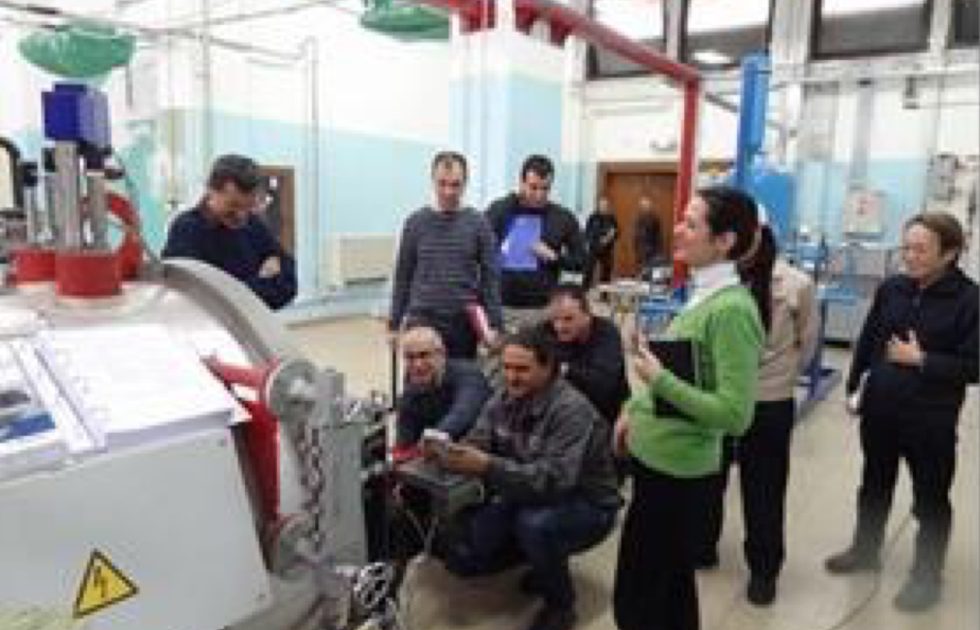
- Have the general attitudes toward reducing energy consumption changed around the world?
We have recently been asked by the governments of Saudi Arabia and Oman to assist them in creating master plans for reducing the energy consumption in their countries. Even oil-rich countries have been showing a strong interest in measures for reducing energy consumption, despite their having no issues in producing enough fuel for their power generation needs.
European countries, on the other hand, want to do more than just cut costs by reducing energy consumption. They are focusing on the issue of creating an energy management mechanism that would reduce the impact on the environment.
Asian countries have not shown much interest in introducing any measures to reduce energy consumption until recently. However, Japanese companies, as well as local corporations operating in the region are now requesting management policies for reducing energy consumption similar to those that are in place in Japan. We have also noticed that the focus in this region is shifting from mere cost cutting to technologies such as smart cities and smart grids.
I believe that the business areas we can contribute to are going to expand drastically.







